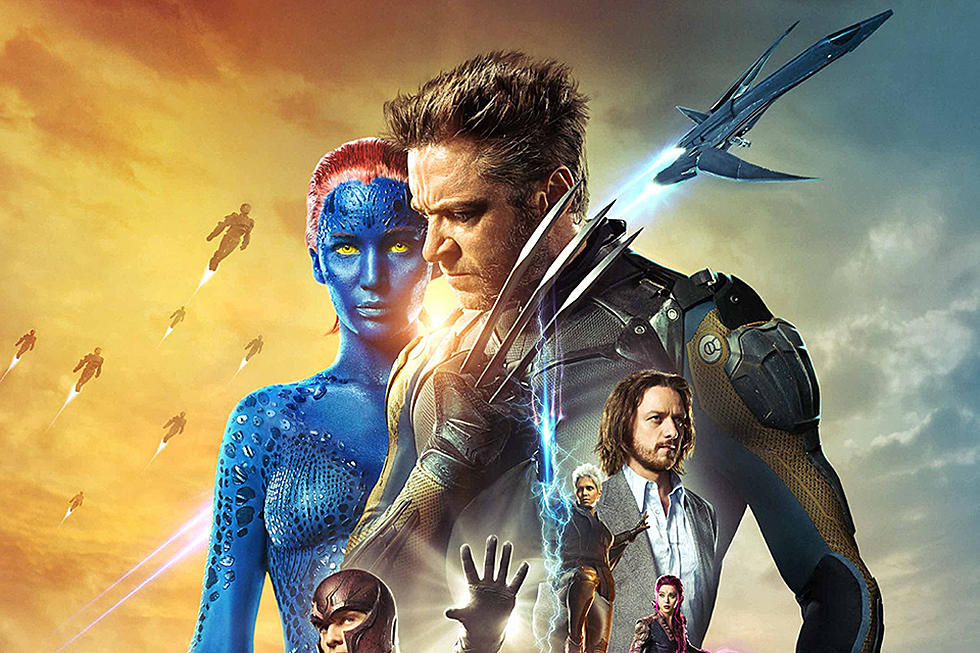
‘The Hunger Games: Catching Fire’ Review
When the closing credits rolled after the original 'The Hunger Games,' I thought to myself "eh, not bad." But I was in no rush to see the follow-up. When the closing credits rolled after Francis Lawrence's 'The Hunger Games: Catching Fire,' after I was able to collect myself, I was fully prepared to run out and get a mockingjay tattoo. Over my heart. With the phrase, "I will lay down my life for you, Katniss Everdeen, because you are the first and finest true hero of 21st century cinema."
Okay, that may be getting a little carried away (and by the time I exited the theater I had calmed down a bit) but let's just say now I get it. I see why people are bananas for this franchise. It is, without question, working on a higher level than the typical “young adult” properties out there. I can't speak about Suzanne Collins' prose, but the themes she's working with are mature and the ways in which she teases out the plot is both thought-provoking and highly entertaining. And in the films – particularly this film – there's the outstanding X-factor of Jennifer Lawrence elevating the material.
We open with Lawrence's Katniss Everdeen back in District 12, living in false happiness in "Victors' Village." She is the victim of post-traumatic stress syndrome, and while we've seen people wake in fright from terrifying nightmares a thousand times before, when Lawrence does it she really sells it. She's angry at herself for what she did in the arena, and by the time this movie is over she'll realize that the "true enemy" is the cruel social order that only she has the power to change.
Seeing an emotionally broken warrior is part of the cognitive dissonance from 'The Hunger Games' is admittedly far-fetched, but now I'm realizing, a brilliant conceit. How would a society ever allow the brutality of children murdering one another for entertainment/pacification? What 'Catching Fire' uncovers is that everyone – even Donald Sutherland's President Snow – is living in fear.
The people fear the government, Snow fears the historical inevitability of an uprising. He (and his caste) are well aware that vomiting up food to make room to taste more is fundamentally unjust while workers are starving, but being on the winning side of an economic divide is just too much fun to pass up, I suppose.
Katniss lives in fear, too. All she wants is to be left alone – she does not want to be a leader - but as Woody Harrelson's Haymitch Abernathy breaks it to her, "once you get on this train, you don't get off." He's speaking specifically of the phony public relations duties of a Hunger Games champion (and the real world parallels have a nice ring – Jennifer Lawrence does not suffer fools during press junkets). She's also still quaking from her time in the arena, where her very survival was dependent on killing people she did not want to kill (even though it was self-defense).
As Katniss' defiant nature starts to inspire people in the districts to resist the monstrous Capital (even though she herself tries to tamp this down) her worst fears come true as a “quarter quell” means the new Hunger Games must be comprised of past winners.
Strangely, the action in the arena – the final third of the film, maybe a little more – is less interesting than the political/social machinations of the first part of the picture. There's more to chew on watching Katniss smooch Peeta Mellark (Josh Hutcherson) for the invasive, robotic cameras, than her shooting arrows at nameless “careerists” in a spandex uniform. Especially as good guy Peeta does start to work his way into her heart, despite her devotion to secret boyfriend Gale (Liam Hemsworth).
Nevertheless, the second film in this major franchise has a far greater budget (there's a little in-universe wink to “new facilities”) and those changes are very much up there on the screen. The CG effects in the first film were pretty tame, but here the action is far superior.
Indeed, the whole production is a level-up. The Fascist imagery of the Capital is striking (nice boy Peeta looks like a Nazi in his publicity pic) and the weird Futurist fashion (Elizabeth Banks' butterfly dress, Jena Malone's flying buttress eyelashes) have few cinematic antecedents that I can think of.
A movie franchise with this level of popularity could, if it wanted to, merely phone it in. Look to the 'Twilight' films. 'Catching Fire' is two-hours and twenty-six minutes with credits. I joked about this before the screening. "With this movie they know they'll get butts in seats, but they need to cram in every tangent to please the rabid fans, ensuring they come back three more times," I cynically argued. "That's true," a friend agreed, "it's just a shame producers aren't more concerned with quality."
'The Hunger Games: Catching Fire' is that rare beast that has it both ways.
'The Hunger Games: Catching Fire' opens in theaters on November 22.
Jordan Hoffman is a writer, critic and lapsed filmmaker living in New York City. His work can also be seen on Film.com, Badass Digest and StarTrek.com.
More From Cat Country 102.9










